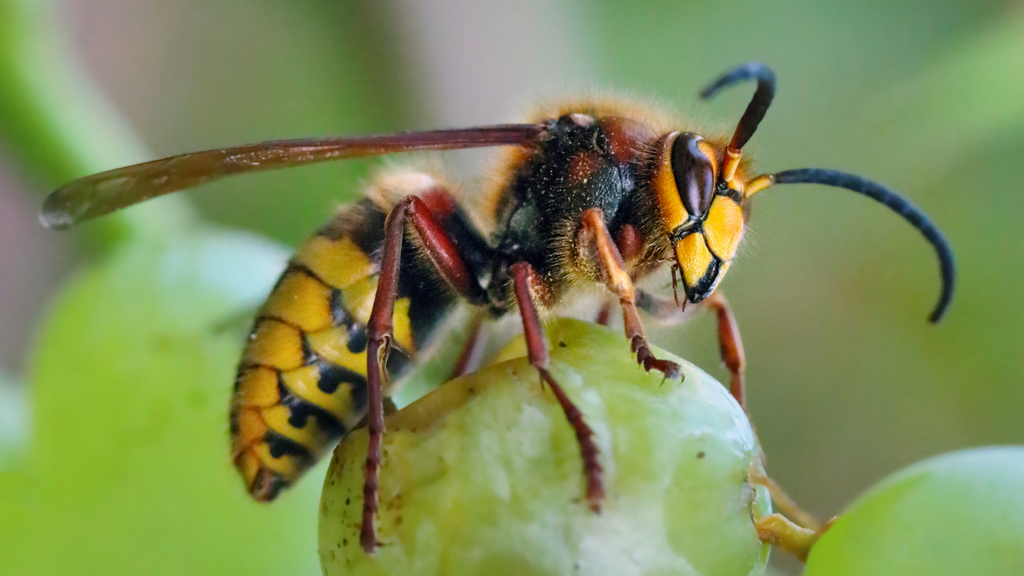The European wasp (Vespula germanica) may look like a regular wasp, but it behaves very differently—and far more aggressively. Unlike native species, it will defend its nest viciously, stinging multiple times without hesitation. These wasps are not only a serious risk to people and pets but are also persistent scavengers that build massive nests in roof cavities, sheds, wall voids, and even underground.
In summer and early autumn, they’re particularly active, drawn to sugary foods, meat, drinks, and open bins—bringing them into conflict with homes, restaurants, schools, and outdoor events.
Left unchecked, a single queen can lead to a nest containing tens of thousands of wasps within just one season.
Beyond backyards, European Wasps cause serious harm to the environment and economy. In agriculture and horticulture, they damage fruit crops and vineyards by feeding on ripe fruit and attacking harvest workers. In beekeeping, they invade hives, kill native bees, and steal honey, reducing productivity and decimating local pollinators.
From an ecological perspective, these invasive wasps threaten biodiversity. They compete with native insects for food, disrupt predator-prey balances, and destroy the food web dynamics that our environment depends on.
Worst of all, their nests often go undetected until the colony has reached an enormous size—making later treatment more difficult and dangerous.

At The Wasp Man, we take European Wasp control seriously—and personally. Our approach combines experience, science-backed techniques, and local knowledge to tackle infestations before they spiral out of control.
We identify nest locations and high-risk zones quickly and accurately.
Specialised traps are installed to intercept European Wasps without harming the broader ecosystem.
Traps are checked and maintained to ensure long-term effectiveness.
If nests are found, we carry out safe and targeted removals using industry-grade equipment.
Whether it’s your backyard, business, or rural property, The Wasp Man delivers peace of mind with fast turnaround, expert advice, and proven results.
If you’re interested in learning more about the European Wasp’s biology, behaviour, and management strategies, we recommend exploring trusted government sources.
A great starting point is the Department of Primary Industries and Regional Development – WA, which offers detailed guidance on identification, control, and reporting.